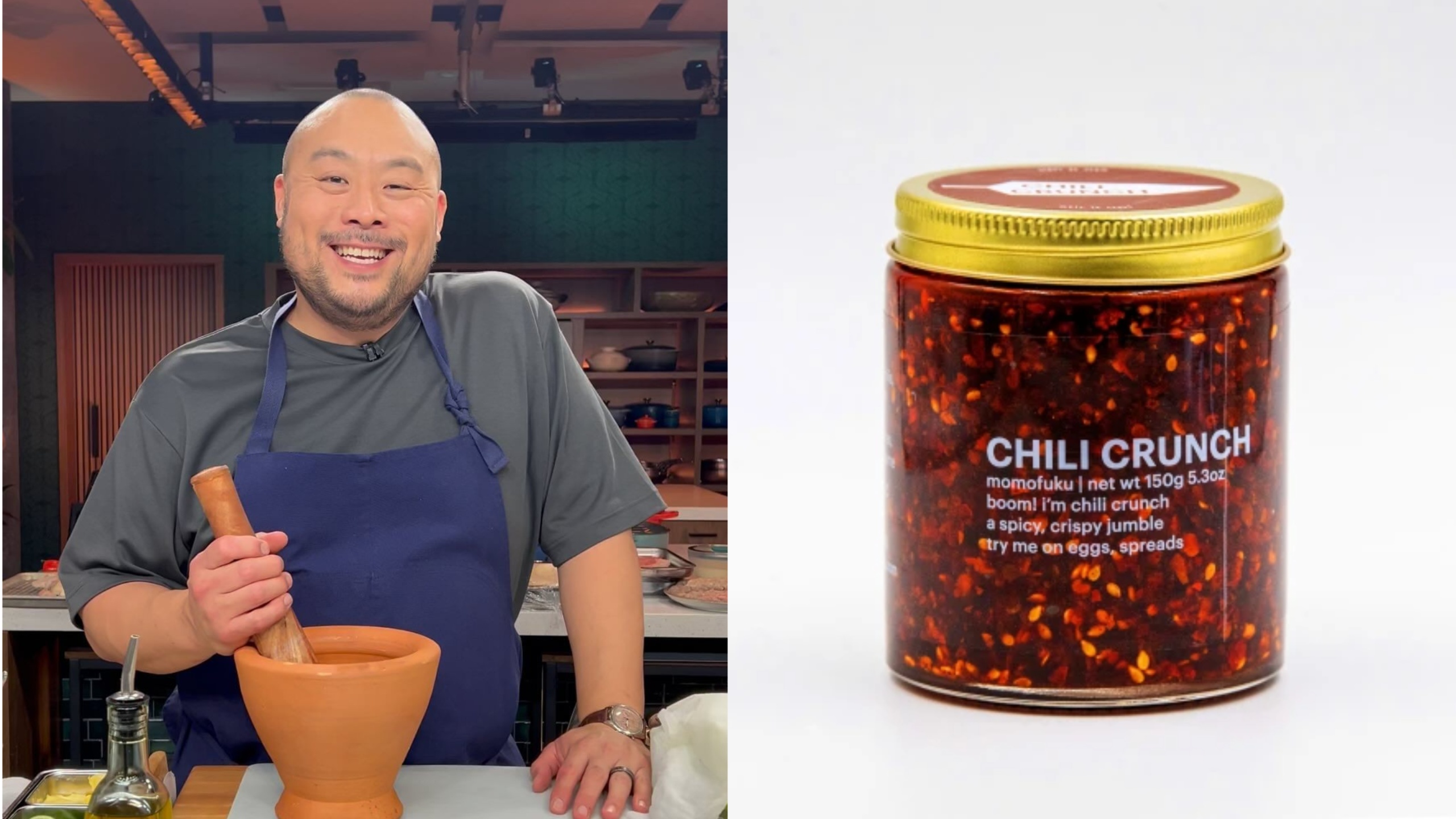Celebrity chef David Chang and his food empire Momofuku are under fire for attempting to trademark the term “chili crunch”. The controversy stems from Momofuku’s efforts to protect their condiment of the same name, sending cease-and-desist letters to smaller brands that also use the term.
The popular condiment, inspired by the flavors of various Asian cuisines, typically features crispy chili oil, fried garlic, and spices. While Momofuku is not the condiment’s originator, they claim ownership of the phrase “chili crunch”.
Read more: Amanda Nguyen: Survivor. Activist. Astronaut.
Small businesses targeted by Chang’s company describe the move as “trademark bullying”. They cite the term’s common usage for similar products and its roots in Asian culinary traditions. Michelle Tew, founder of Homiah, a Malaysian food brand, expressed shock that Momofuku would threaten a fellow Asian-American business, saying it felt like “a punch in the gut”.
Jing Gao, founder of Fly By Jing, a Sichuan chili crisp brand, argues that the trademark for “chili crunch” should never have been granted to Momofuku. She contends that the term is generic and descriptive of a condiment that has been a fixture of Chinese cuisine for centuries. “Chili crisp” or “chili crunch” are simply translations used to introduce this familiar condiment to English-speaking consumers,” she said.
Gao points out that her own attempt to trademark “Sichuan chili crisp” was rejected by the USPTO for the same reason – the phrase is too descriptive to be a unique trademark.
Some brands have responded by accepting Momofuku’s demands, fearing the cost and difficulty of a legal battle.
Read more: Star Nhà Ease: Vietnam’s Rich Cinema History Gets the Spotlight in the UK
However, Seattle-based MiLA has publicly taken a stand against Momofuku, proposing a blind taste test to settle the issue.
Critics of Momofuku’s tactics point out that trademark law is primarily meant to protect consumers from confusion and unfair competition, raising questions about the company’s motivations.
Momofuku has not publicly responded to the backlash.
Do you think it’s fair for one company to claim ownership of a widely-used term, even if it’s descriptive of a type of food?










